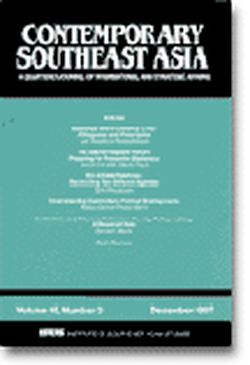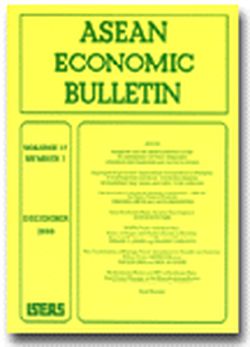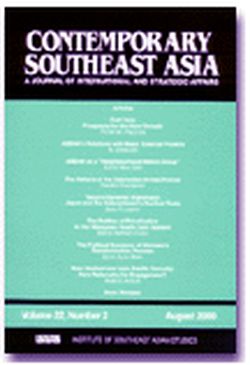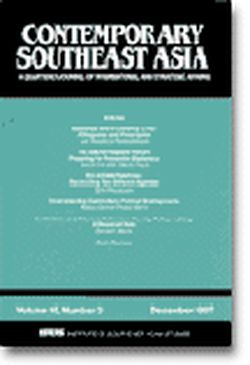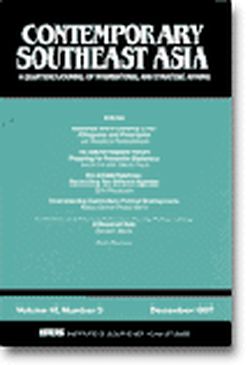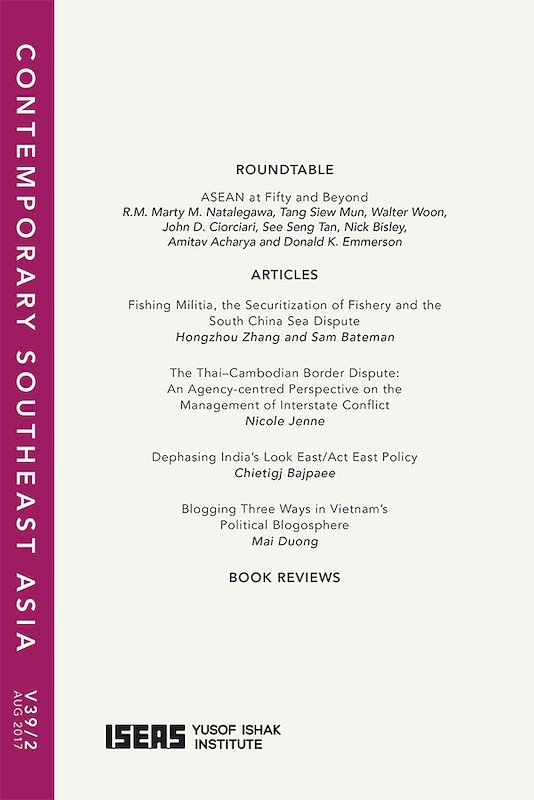Contemporary Southeast Asia: A Journal of International and Strategic Affairs Vol. 14/4 (Mar 1993)
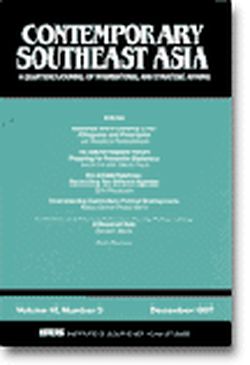
Date of publication:
March 1993
Number of pages:
122
Code:
CS14/4
Contents
-
Preliminary pages
- ARTICLES
-
U.S. Strategy and Southeast Asian Security: Issues of Compatibility, by Sheldon W Simon, author see abstractAn essentially benign regional security environment in Southeast Asia for the 1990s, in addition to U.S. economic woes, is leading to a significant reduction of forward-deployed American air and naval forces in the region. An important implication of this draw down has been the acceleration of indigenous defence build-ups among all the ASEAN states designed not only to protect national territories but also to project forces into disputed areas such as the South China Sea. Disputes among ASEAN members place Washington in an uncomfortable position, one in which the United States will refrain from supporting any contender. Therefore, the stability potentially contributed by even a reduced U.S. presence may be less than expected. A Southeast Asia military balance for the 1990s will depend on the region's own capabilities and organizational will.
-
Sino-Vietnamese Relations and Southeast Asian Security, by Ramses Amer, author see abstractThis article analyses the recent normalization of relations between China and Vietnam and discusses the future prospect of their bilateral relationship. The areas of potential bilateral co-operation as well as issues of contention are also outlined. Particular attention is devoted to the regional repercussions of the improvement of relations between the two countries. Generally speaking, better relations between China and Vietnam is a positive evolution from the point of view of regional stability in Southeast Asia. However, if the relationship evolves into some sort of alliance it could have negative effects on regional stability.
-
Thailand's Resource Diplomacy in Indochina and Myanmar, by Marc Innes-Brown, Mark J Valencia, authors see abstractThailand has depleted much of its own timber, minerals, and fish, and is unable to meet its gas and petroleum demands through domestic production. Since the government of Chatichai Choonhaven, it has sought to gain access to the natural resources of Indochina and Myanmar. Thailand sees itself as the future economic hub of mainland Southeast Asia, integrally linked to Indochina and Myanmar as a source of raw materials, and serving as a bridge between these countries and the world economy But its natural resource management at home and abroad has been so wantonly wasteful and exploitative that, given the history of enmity between Thailand and its neighbours, this practice calls into question its continued access to their resources, as well as its goal of regional leadership.
-
Indonesia's Foreign Policy in the 1990s, by Michael Vatikiotis, author see abstractThis article surveys trends in Indonesian foreign policy. It argues that with the recent surge in economic growth at the end of the 1980s, Jakarta has charted a new phase of more active participation in regional and global affairs. Historically, Indonesian foreign policy has swung between active and passive modes of diplomacy. The latest, more active phase is in part a product of President Soehartos own decision to enhance his global and regional stature. In doing so, he has drawn on latent nationalist sentiments that have always perceived Indonesia as a medium-sized power with activist ideals. The question this raises is how for can Indonesia assert itself on the diplomatic stage before breaking free of the self-imposed containment which has underpinned ASEAN and regional stability for the post quarter century.
-
Theoretical Perspectives on the Role of State Elites in Southeast Asian Development, by Syed Farid Alatas, author see abstractThis theoretical and conceptual article identifies issues and problems in connection with the study of the role of the state in development. The role of leaders and elites is discussed in the context of the various theoretical perspectives on the state, each of which has a conception of the idea and nature of the state. The article concludes with some general remarks on the role of leaders and elites in the process of development, with a focus on successfully managed economic development and democratization.
-
Political Stability in an Industrializing Culture: Shifting Forms of State Legitimacy in South Korea, by Dennis M Hart, author see abstractThe underlying purpose and role of political protest in South Korea has significantly shifted over the post few years as that country moved away from decades of authoritarian rule. Industrialization of culture has contributed greatly to the redefinition of state legitimacy. One result of this industrialization has been a change in the discourse used by opposition politicians in their appeals to the South Korean citizenry. The radical sentiments and anti-capitalist rhetoric used by opposition politicians of the 1960s and 1970s have lost their attractions and are being replaced with ideals that embrace capitalist industrialization and endorse increased consumption of material goods.
- BOOK REVIEWS
-
BOOK REVIEW: The New Regionalism in Asia and the Pacific by Norman D Palmer, by Amitav Acharya, author
-
BOOK REVIEW: The World Disorder: The Leninist Extinction by Ken Jowitt, by Nazir A Kamal , author
-
BOOK REVIEW: Gorbachev and Southeast Asia by Leszek Buszynski, by Pushpa Thambipillai, author
-
BOOK REVIEW: Brother Number One: A Political Biography of Pot Pot by David P Chandler, by Mike Yeong, author

